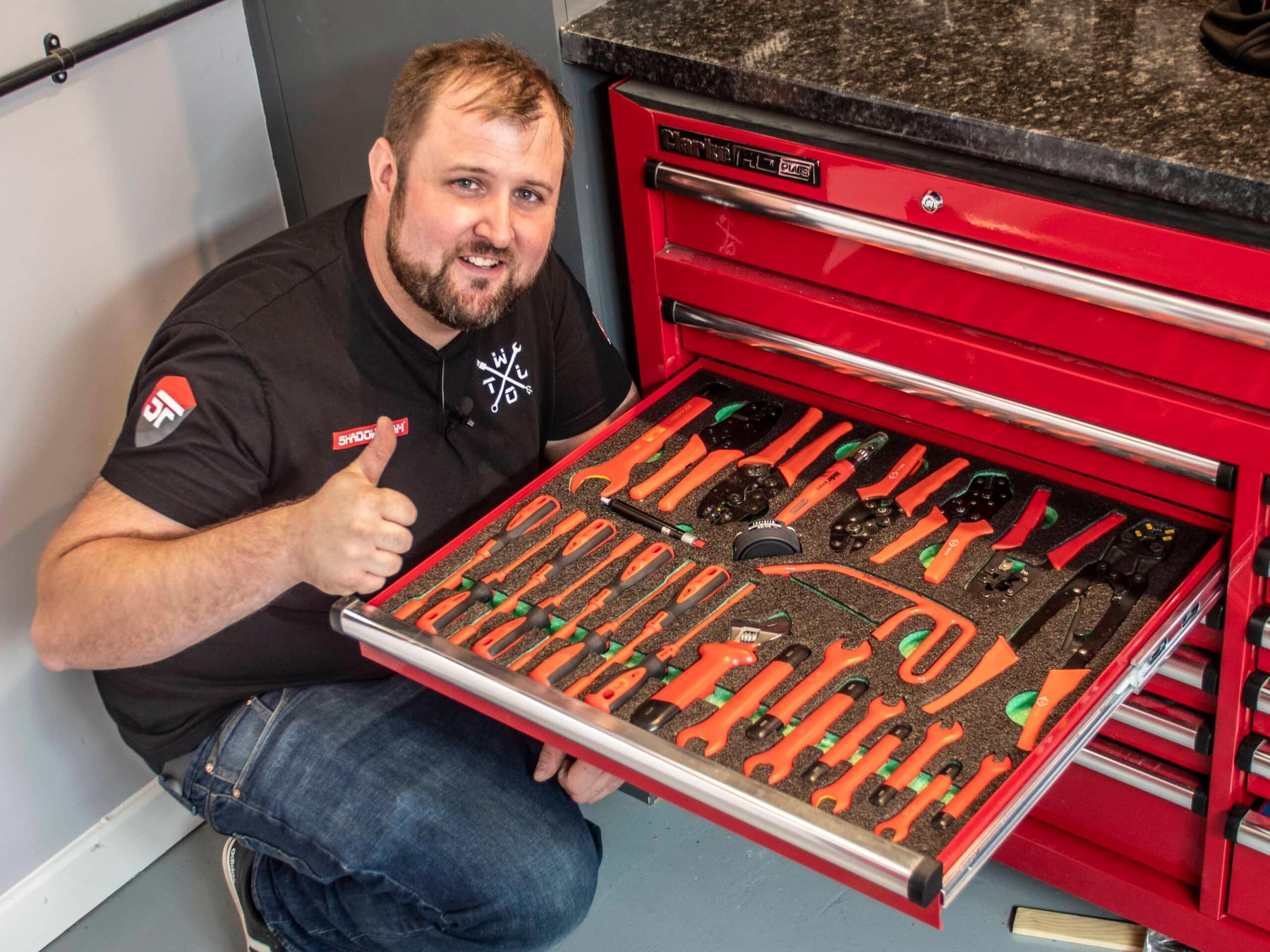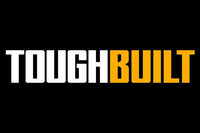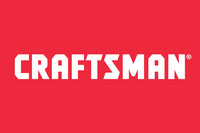Clôture quotidienne des commandes à 14h

Comment obtenir la perfection du tiroir à outils
Si comme nous vous avez une caisse à outils Clarke ou une autre marque de caisse à tiroirs, ceci est pour vous. Ce guide vous aidera à obtenir un tiroir à outils parfaitement organisé en un rien de temps. En retour, cela durera et protégera vos outils pendant de nombreuses années. Ne perdez plus jamais un outil en apportant un contrôle des outils de niveau aéronautique chez vous ou dans votre atelier. Économisant du temps et de l'argent... que demander de plus !? Et voici comment cela se fait.
Notre coffre à outils Clarke
Ce gigantesque coffre à outils trône, en bonne place, dans notre atelier-atelier. Nos outils sont fréquemment utilisés pour les nombreux projets sur lesquels nous travaillons, donc les avoir bien organisés est important.
Vous aurez nous avons vu organiser nos tiroirs à outils Clarke auparavant. Auparavant, toute la boîte à outils était organisée à l'aide de notre ancien, maintenant discontinued grade of foam, Shadow Foam Original. Shadow Foam Original was great, but not really sustainable as a product hence replacing it. Also it was a lot softer than the new foam. Significantly, it wasn’t as durable or cleanable and the top colour could become grubby after a lot of use.
Donc, tout est prêt pour la mise à niveau, et c'est bien sûr un gros travail dans une boîte à outils de cette taille ! Nous avons récemment terminé les tiroirs à clés, donc aujourd'hui nous passons à notre kit électrique isolé.

Qu'est-ce qui va dans le tiroir ?
Nous avons rassemblé une assez grande collection de Outils de sertissage CK et une scie à métaux isolée. Aussi un fer à souder à gaz et un aspirateur à soudure avec un support, quelques embouts interchangeables et un tube de soudure et une petite clé. Nous avons également un ensemble complet de Clés à molette isolées Bacho, et our GearWrench clés à écrou isolées.
C'est beaucoup de matériel à faire tenir dans un seul tiroir. Mais en utilisant le meilleur conseil de Jonathan qui consiste à positionner vos outils tête-bêche, vous pouvez économiser environ 30 % d'espace par rapport à un alignement uniforme côte à côte.

Comment c'est fait
Nous rappelons toujours aux gens la même chose. Veuillez toujours porter des gants anti-coupure lorsque vous travaillez avec Shadow Foam et les lames tranchantes dont vous avez besoin pour le couper. Si vous n'en avez pas, nous les fournissons dans notre kits de découpe, et ils sont vraiment importants.
Notre outil recommandé pour couper la mousse est un scalpel. Encore une fois, ceux-ci sont disponibles dans nos kits de coupe si vous n'en avez pas déjà un. Et nous suggérons toujours de rafraîchir vos connaissances sur les meilleures techniques à utiliser pour couper et peler via les guides dans le Comment faire section de notre site web. Nous avons également un utile Guide au Shadowfoaming. Cela contient certains des meilleurs conseils et astuces ainsi que les questions les plus fréquemment posées que nous rencontrons.
Une chose que nous avons faite légèrement différemment ici est un astuce ingénieuse pour savoir quand l'espace est limité. Nous avons créé un espace dissimulé pour que les articles de fer à souder à gaz s'y installent. Donc, ce que nous avons fait ici, c'est de découper autour du fer à souder à gaz lui-même pour qu'il s'asseye bien dans l'espace, puis de l'enlever. Maintenant, en dessous, nous allons découper les articles supplémentaires. Le tube de soudure et la petite clé. Ils peuvent maintenant se ranger discrètement sous le fer lui-même.
Les détails de finition
Avec ce projet, une fois que nous avons découpé tous les outils dans la mousse, nous voulions également ajouter des poignées pour faciliter leur extraction. Les deux principales techniques que nous utilisons pour cela sont soit avec un bord droit. Pour cela, nous utilisons notre Shadow Foam bord droit. Ou un cercle, et pour cela nous utilisons notre Ensemble de pochoirs Shadow Foam. Avec ce projet, nous avons vraiment aimé le contraste entre la mousse Green et les outils Red. Mais jetez un œil, que pensez-vous ?




















 Kit de découpe gratuit sur les commandes qualifiées
Kit de découpe gratuit sur les commandes qualifiées
 Plus de 3 000 avis positifs
Plus de 3 000 avis positifs
 Plus de 500 vidéos sur YouTube
Plus de 500 vidéos sur YouTube
 Soutien basé au Royaume-Uni
Soutien basé au Royaume-Uni